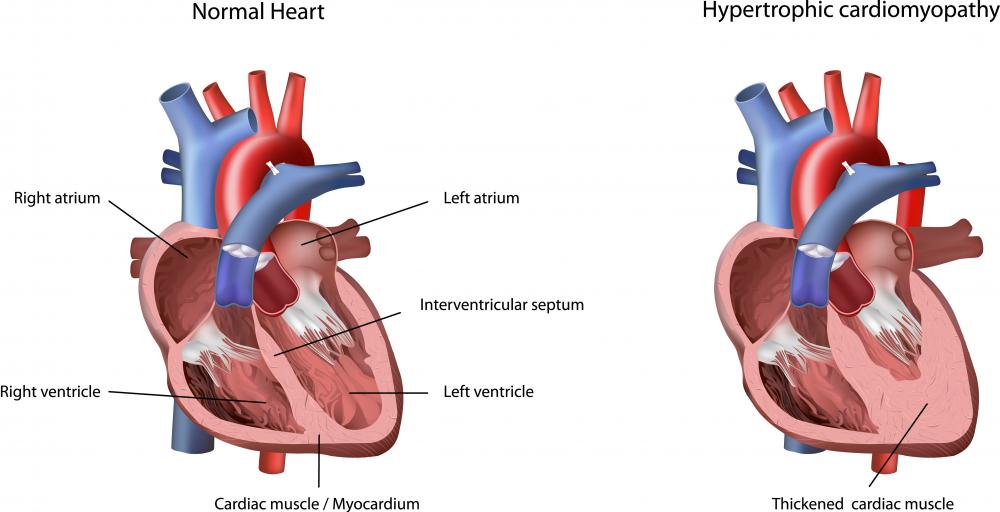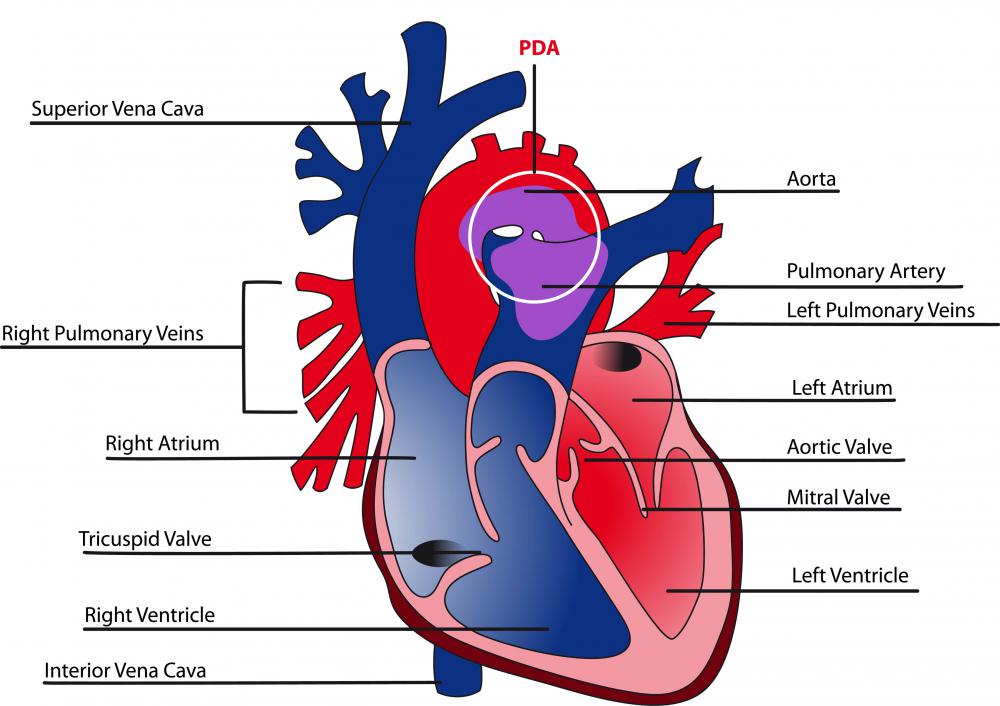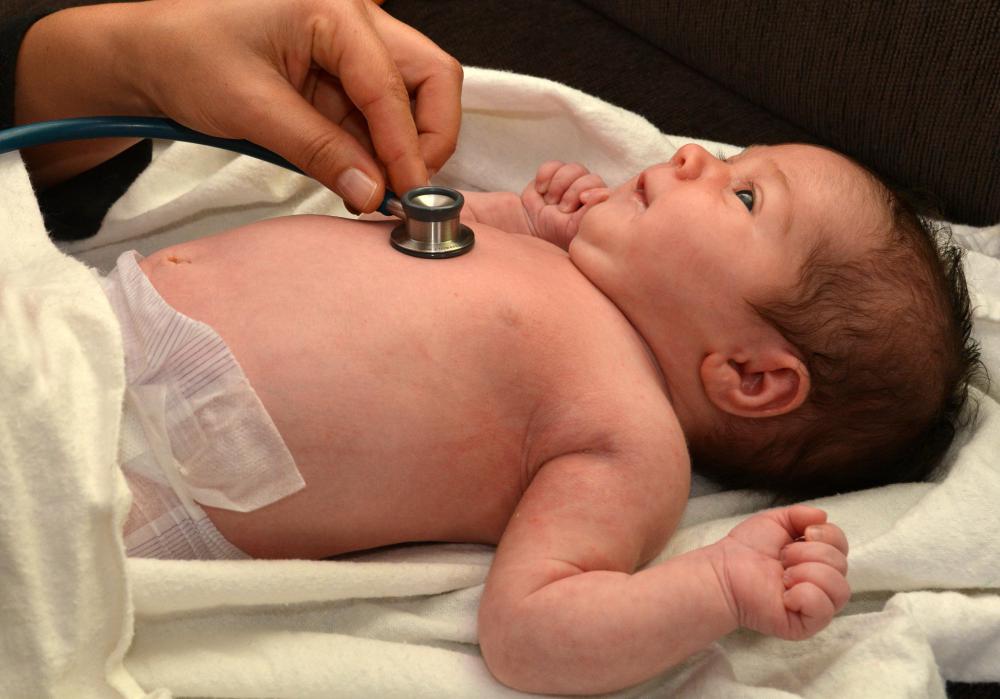At TheHealthBoard, we're committed to delivering accurate, trustworthy information. Our expert-authored content is rigorously fact-checked and sourced from credible authorities. Discover how we uphold the highest standards in providing you with reliable knowledge.
What are Different Types of Heart Disease?
Heart disease is a huge term that can describe many different conditions. All of these conditions have some effect on the heart or the blood vessels that supply the heart. It’s certainly possible to have several types of heart disease at the same time, which can make it difficult to think of these conditions as separate. The fact that the heart is part of the circulatory system means that disease in one part of the system will have an affect on how all parts work.
Some disease is classified by its effect on the different components of the heart. In broad strokes, the heart has four chambers (two ventricles and two atria), muscle, lining, an electrical system, valves, and coronary arteries and veins. Heart disease may be defined by what part of the heart it mostly affects.

Disease of the chambers include many forms of congenital heart disease, where a chamber may be missing vital parts like separating walls or can be smaller than normal. Other diseases of the chambers can include an enlarged right ventricle, called cor pulmonale. Congestive heart failure is usually considered a chamber disease, and can be loosely describes as the heart failing to pump enough blood to supply the body.

Muscle diseases can include many conditions that result in enlarged heart. Most forms of cardiomyopathy fall under this heading. Myocarditis, defined as inflammation of the heart muscle and which can result from things like virus and bacterial infection, is also a heart muscle disease.
The outside of the heart is covered with lining called the pericardium, and the inside is lined with the endocardium. Certain disease types specifically affect one of these areas; most often, these are pericarditis and endocarditis. Some forms of endocarditis can be a complication of bacterial infections and those most at risk have usually had heart surgery or have some other form of heart disease. To protect against bacterial endocarditis, most people must use antibiotic treatments prior to seeing the dentist or having any type of oral surgery.

There can be many problems that affect the electrical system of the heart, and most of these conditions create unusual heart rhythms. Some don’t require treatment while others need significant medical intervention. Forms of electrical system disease include heart block, long QT syndrome, tachycardia, atrial flutter, and ventricular fibrillation.
The heart valves include the pulmonary, aortic, tricuspid, and mitral valves. The tricuspid and mitral valves are located inside of the heart between ventricles and atria (right and left respectively), and the pulmonary and aortic valves are located right outside the heart.

Diseases involving these valves can include narrowing (stenosis), absence or such significant narrowing that the valves produce no blood flow (atresia), and poor valve function (insufficiency). Valve regurgitation can occur in any valve and means some of the blood leaks back in the wrong direction. Another common valvular heart disease is mitral valve prolapse.

Some of the most common conditions are found in the coronary arteries and veins. These include angina, atherosclerosis, ischemic heart disease, and the interruption of blood flow to the heart through a coronary artery, which results in heart attack (myocardial infarction). Ischemia and the atherosclerosis pose great risk for not only heart attack but also stroke.

A few other conditions that affect the heart but aren’t located specifically within or directly outside of the heart, include high blood pressure or hypertension, and peripheral arterial disease. As previously stated, some conditions may be present together. A person can have angina and hypertension, for instance, or a narrowing of coronary arteries may ultimately lead to a heart attack. Not all conditions are preventable, especially not those conditions resulting from birth defects, but most people know that some can be prevented through pursuing a healthy diet and exercise program, and not smoking at all or drinking to excess.
AS FEATURED ON:
AS FEATURED ON:



















Discussion Comments
Great topic, thanks for taking such good care of this website!
What does oral health have to do with heart problems? I'm assuming that it's some type of blood poisoning.
what do these abbreviations mean? : dtcv+cia(01)+LCA
Is there a corelation between heart disease and the neck circumference? As strange as it may seem it appears that it does.
In a study of several thousand people larger necks indicated more risk factors for heart disease, such as elevated triglycerides count among others.
Post your comments